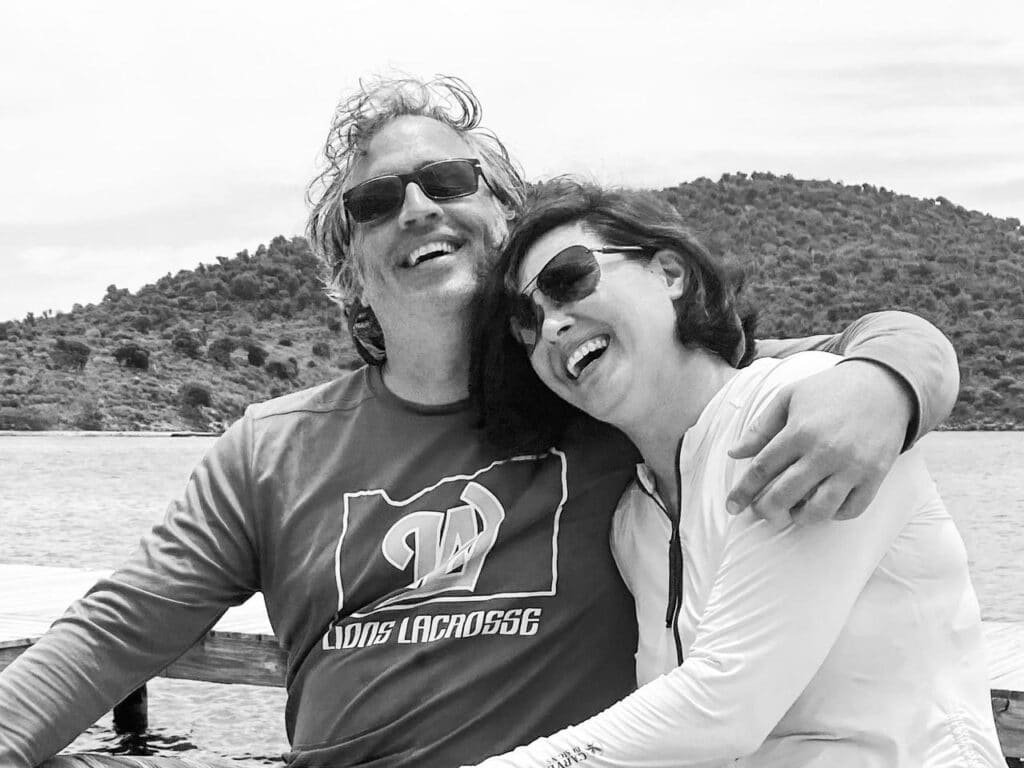Board of Directors Profile: Scott Demorest
October 18, 2022
Board Member Scott Demorest made his first gift to Oregon Trout, TFTʼs predecessor, when he was just a teenager. Thirty years later, continued support from Scott and his wife Rebecca is playing a pivotal role in TFTʼs ability to scale to new geographies, refine analytical tools, and change how all conservation and restoration is paid for and implemented.
What are your professional backgrounds?
Scott: Our careers have largely been in consulting. Rebecca started in finance at General Electric and moved on to consulting with Arthur Andersen and PointB. I started consulting after graduate school, working for a large multinational company, and then co-founded Acme Business Consulting. After successfully transitioning the sale of Acme in 2015, I have consulted with early-stage startups. We have both served on nonprofit boards, most recently TFT and Pacific Northwest College of Art.
How did you both get involved with TFT?
Rebecca: Scottʼs first involvement with TFT was when he was a teenager and began donating to Oregon Trout. Much later, he met Joe Whitworth on a Rogue River expedition and they talked about the future of conservation and freshwater ecosystems. He joined the board shortly after that trip. I also jumped in, supporting TFT with my time and consulting as the organization has transformed over the last 10 years.

What stands out to you both about TFT and what excites you about its future?
Scott: The current water crisis is dire and will only get more severe with our changing climate. There is a real possibility that salmon will be unable to return to spawn within the next 10 years. TFT is the only organization weʼre aware of that has the technology and expertise to prevent that from happening and to ensure our existing freshwater resources can and will continue to support life on this planet.
Rebecca: We have an affinity for supporting organizations that challenge the status quo and have the ability to vastly improve systems. Itʼs evident we need better approaches to conservation.
TFTʼs use of analytics to identify high-impact conservation actions provides a unique approach that will enable us to fix rivers with a better return on investment.
The potential for large-scale use of this approach is very exciting as the need is clearly there.
What is the most frustrating thing to you about the water problems in this country? Conservation in general?
Scott: Historically, the allocation of conservation resources has been measured by action and not outcomes. The national budget for conservation is more than enough, but itʼs being spent inefficiently. TFTʼs analytics show what needs to be done, where it needs to be done, when, and the most cost-effective way of doing it.
If you had to say in one sentence why someone should give to TFT, what would it be?
Scott and Rebecca: TFT has the opportunity to radically improve the way conservation is done nationally. They can urgently, fundamentally, and efficiently save our freshwater ecosystems.
#donorprofile #donors #support
